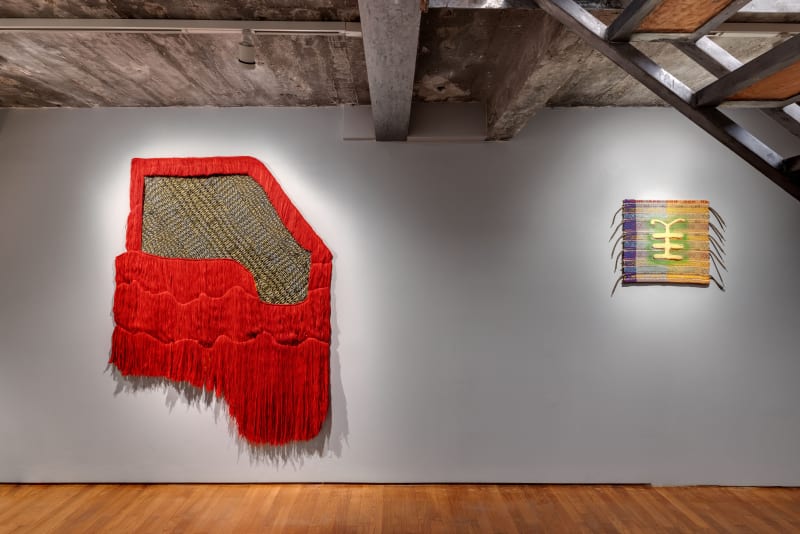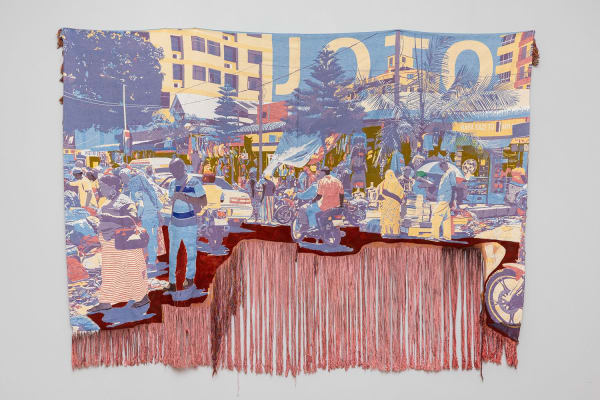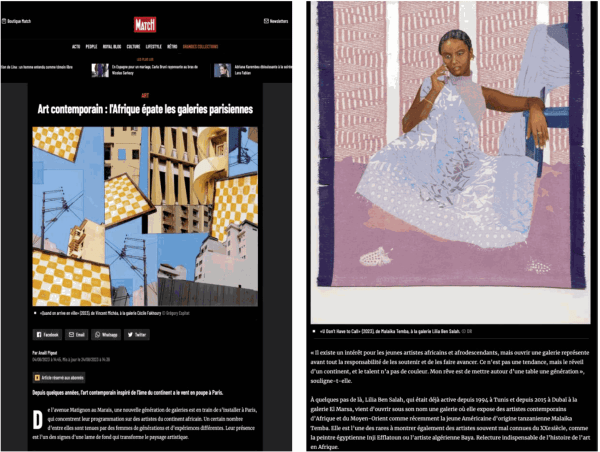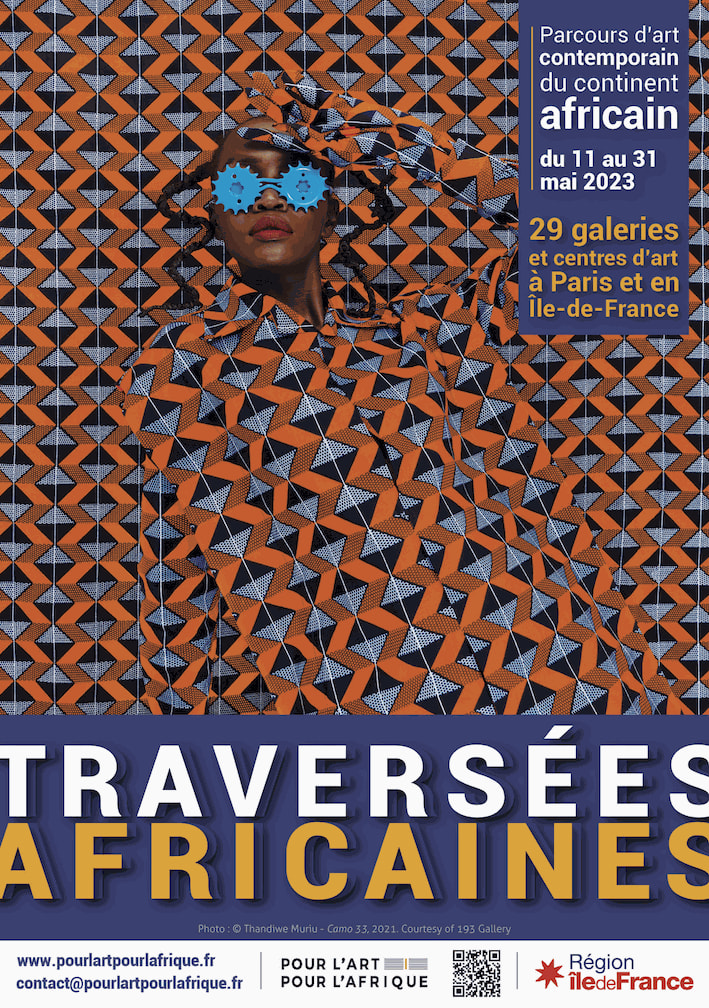Wildfires on Mount Kilimanjaro: Malaika Temba
"My work embodies the paradox of textiles: soft and ornate but resilient and unbreakable, my practice honors the lineage of laborers, caregivers, aunties, and femmes of the diaspora."
lilia ben salah is thrilled to present Tanzanian American New York-based artist Malaika Temba's first solo exhibition in Paris: "Wildfires on Mount Kilimanjaro" from 27th March to 20th May 2023.
Malaika Temba embodies the nature of Lilia Ben Salah's gallery program that celebrates a cohort of transnational women artists and globality influences her work in profound ways. Says Temba: "I feel an influx of cultural perspectives and use different lenses to go about my day." Indeed this is what Lilia Ben Salah aspires to with her new gallery -to convene and celebrate different positionalities and viewpoints in the center of Paris
Malaika Temba was trained in textiles at the Rhode Island School of Design. Challenging the distinction between craft and fine art, her practice goes far beyond the warp and weft of traditional weaving in order to redress histories and transmit meaning. Temba embraces diverse techniques in fiber arts that have been traditionally relegated to the realm of "women's crafts" such as sewing and felting and augments them with the use of paint, photographs, stamps, stencils, and hand drawn images over machine woven and silk-screened fabrics to explore the politics of harsh realities in contemporary life, teasing out questions around identity, gender and the environment.
Malaika Temba's patterns, high-texture, and vibrant colors are inspired by her experiences growing up Tanzanian and American between South Africa, Saudi Arabia, Uganda, the U.S and Morocco. Much like the traditional Kanga of Tanzania-a piece of cloth that is worn with designs and written messages-, Temba's works are embedded with multiple signifiers. In her words: "My work embodies the paradox of textiles: soft and ornate but resilient and unbreakable, my practice honors the lineage of laborers, caregivers, aunties, and femmes of the diaspora."
In her new 2022-2023 series "Wildfires on Mount Kilimanjaro" Malaika Temba offers up a series of large scaled mixed-media textiles, each created by a blend of drawings and photographs and artisanal techniques, depicting scenes from daily life in the village of Kishumundu where her family lives on the geographic landmark Mount Kilimanjaro and in the town of Moshi at the base of the mountain. The legendary dormant volcano is the highest free standing mountain in the world. In the Fall of 2022 catastrophic wildfires threatened its highly biodiverse ecosystem and caused experts to warn that Kilimanjaro's glaciers, one of the last ones on the continent, could disappear in less than 30 years.
Temba's response to these devastating wildfires was to document daily life at the base up, in its ordinary matter of fact-ness, while the fires continued to burn. Such complex layered images on Jacquard woven fabric of her aunt engaged in quotidian tasks "Where I Leave You, 2023", of the local beauty salon "Beauty Salon, 2022" and marketplace "Marketi, 2023" are embellished with fictionalized commercial signs and images of local agriculture in the area which have been disrupted by the fires and serious drought. Temba comments: "The impact of climate change on women in East Africa is particularly severe, as they often bear a disproportionate burden, through their roles as primary caregivers and providers of food and water for their families."
While working in Moshi after the wildfires, Temba expanded her textile practice to paper making. She experimented with wood pulp from the ficus exasperata (msasa or sandpaper tree) using discarded bark, treated and then dried in the sun. The indigenous msasa tree is an integral source of fiber, tannins, fuel, timber and medicine for locals and global warming threatens its existence. Her series of small scale wool and yarn weavings made on a traditional Macomber floor loom then sewn and adhered on this hand-made paper entitled "Fragments 1-19" may recall Anni Albers mid 20th century textile experiments in Mexico formally. This series accentuates the reclaimed nature of Temba's materials further highlighting her commitment to an intersectional eco-feminism - a heightened concern for gender, and economic disparity and the well-being of the earth.
Natasha Boas PhD, internayional curator






